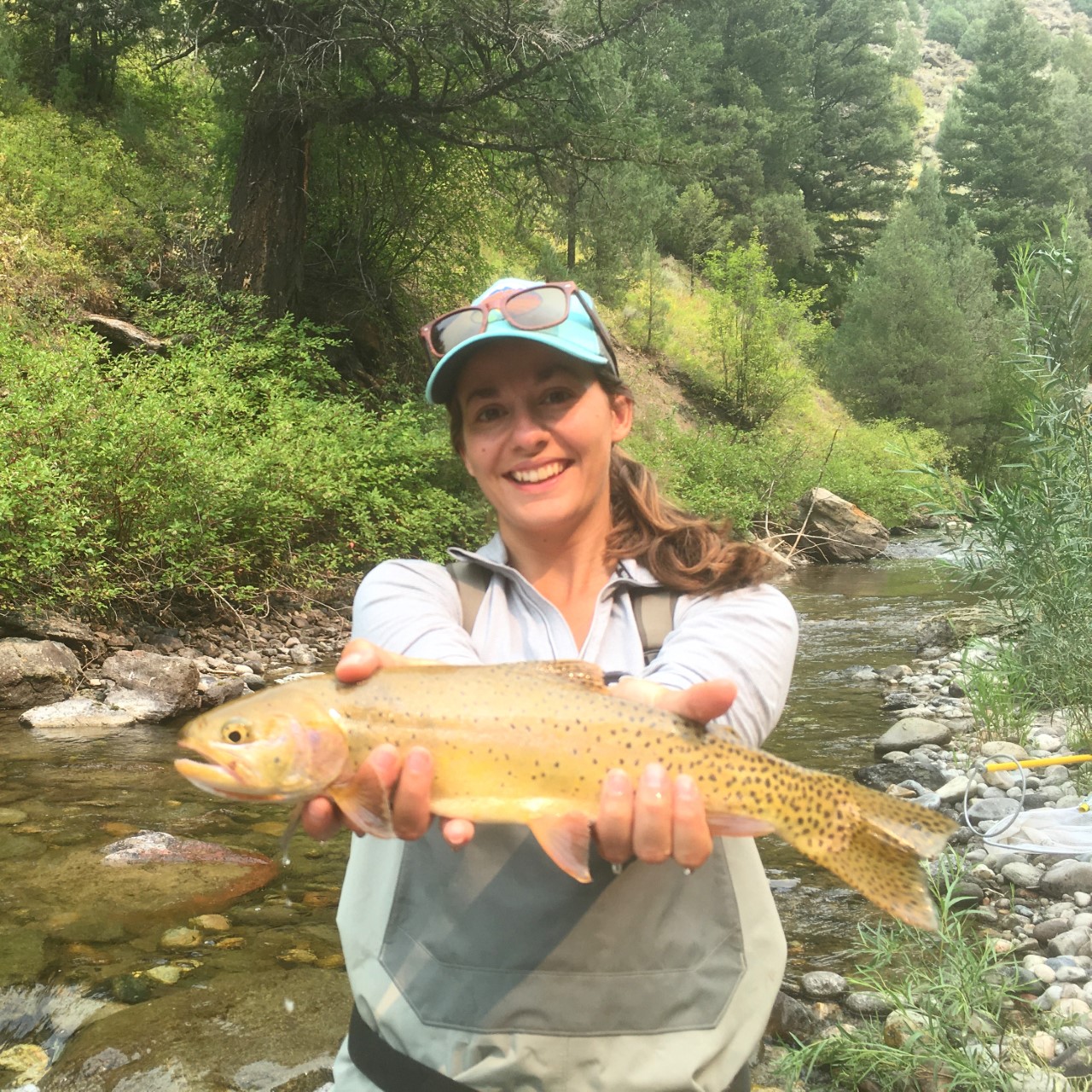Graduate Researcher return to map return to student search

Hometown:
Medford, OR US
School:
Idaho State University
Graduate student
Biological Sciences
Funded by EPSCoR Award:
GEM3 | OIA-1757324
Research Location(s):
Teton River Watershed
COUNTIES: Teton, Madison
LEGISLATIVE DISTRICT(S): District 32, District 34
Research Statement:
Growing up in the Pacific Northwest, Lizzie always had a lot of interest in the outdoors, public lands, and nature, and always wanted to work with fish and wildlife. Jossie moved from Oregon to Idaho ten years ago and completed bachelor of science degrees in both fisheries and wildlife resources at the University of Idaho. Her interests led her to Idaho State University (ISU) where she completed a graduate degree in biological sciences and part of the Idaho GEM3 team working closely with stakeholder groups in the Teton Valley. Lizzie is currently a Fish Biologist for the US Forest Service, currently as a mentee in the Pathways-Recent Graduates Program. Her research interests lie in fisheries, aquatic resources, and collaborative research and conservation, with a goal to work for an organization or government agency with a mission of conservation and science-based natural resource management.
Research Impact:
Jossie's research explores the outcomes to changing stream connectivity for both stakeholders and Yellowstone cutthroat trout and will help provide guidance for management of fisheries, water, and habitat in the Teton River. Her work also integrates social and ecological science and will improve stakeholder engagement and collaboration driven by GEM3, ISU, and Teton Valley stakeholders. Interview results suggest that the social-ecological outcomes to changing stream connectivity become increasingly complex as we consider more and more diverse stakeholder perspectives. Considering a wide range of stakeholder perspectives may be important for future decision-making. Additionally, modeled outcomes for Yellowstone cutthroat trout populations depend on the presence of migratory behavior, reproductive separation from rainbow trout, and control of non-native species such as brown and brook trout. Managing for those factors may be important for Yellowstone cutthroat trout persistence in the Teton River drainage. The results from this research can contribute to the management dialogue surrounding native and non-native fisheries, stream habitat, and water use in the Teton River drainage. It can highlight gaps in knowledge, as well as areas of agreement, between different types of stakeholders and strengthen collaborations between various stakeholder groups in the region.
